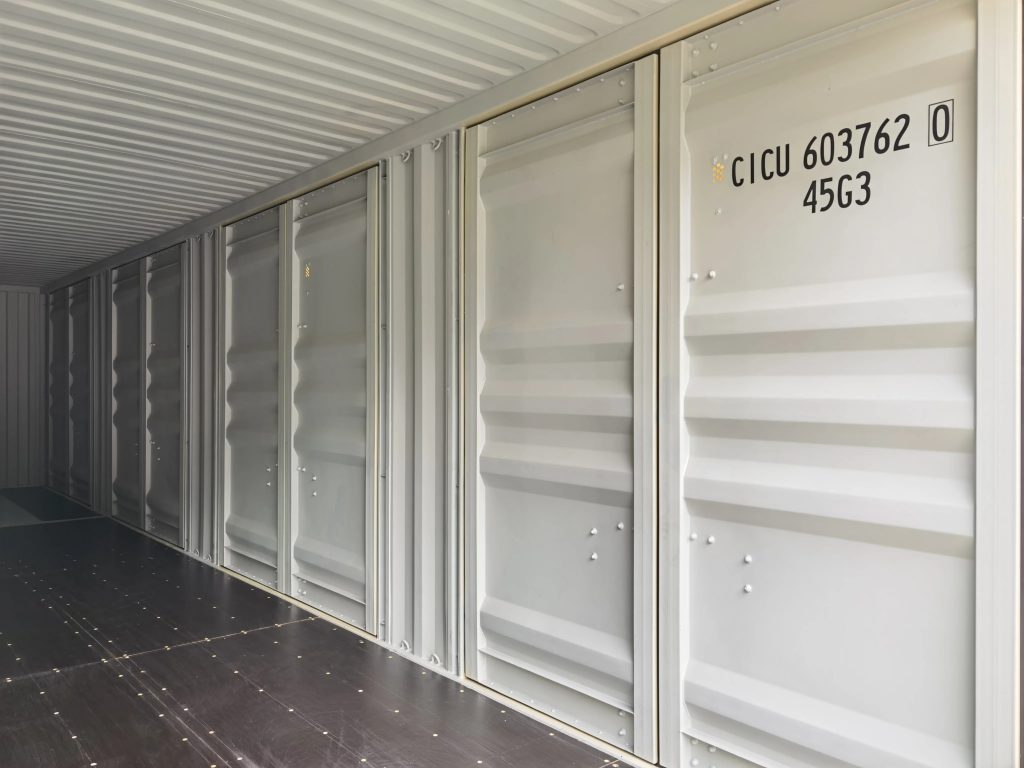Exploring the Versatility of 20 Ft Sea Containers
Over the last few years, 20 ft sea containers have ended up being synonymous with functionality, performance, and innovation in the shipping and logistics market. These containers are not simply critical for carrying items but have actually likewise found special applications across numerous sectors. In this article, we will delve into the specifications, benefits, uses, and often asked concerns surrounding 20 ft sea containers, offering a substantial insight into this vital maritime possession.
Requirements of a 20 Ft Sea Container
Before checking out the different applications and benefits, it's crucial to comprehend the dimensions and requirements of a 20 ft sea container. Below is a detailed table summarizing its crucial specs:
| Specification | Measurement |
|---|---|
| External Length | 20 ft (6.058 m) |
| External Width | 8 ft (2.438 m) |
| External Height | 8.5 ft (2.591 m) |
| Internal Length | 19.4 ft (5.898 m) |
| Internal Width | 7.7 ft (2.352 m) |
| Internal Height | 7.9 ft (2.393 m) |
| Maximum Gross Weight | 24,000 lbs (10,887 kg) |
| Tare Weight | 4,800 lbs (2,173 kg) |
| Payload Capacity | 19,200 lbs (8,693 kg) |
| Volume Capacity | 1,172 cubic ft (33.2 cubic m) |
The Anatomy of a 20 Ft Sea Container
The standard 20 ft sea container is developed for optimized freight transportation. Its steel frame allows it to withstand harsh maritime conditions, making it perfect for long-distance shipping. The container's versatility implies it can be utilized for numerous cargo types, from basic materials to fragile products.
Benefits of Using 20 Ft Sea Containers
Sea containers bring various benefits which have added to their widespread use. A few of the crucial advantages include:
- Durability: Made from corten steel, these containers are developed to hold up against severe weather conditions, making sure the security of products throughout transit.
- Security: Equipped with locking systems, 20 ft sea containers provide a protected environment for transported goods.
- Cost-Effectiveness: Their standardized size enables efficient stacking and storage, minimizing logistics expenses.
- Versatility: Suitable for numerous cargo types, from industrial equipment to individual valuables when used for moving.
- Sustainability: Used containers can be repurposed for multiple functions, decreasing waste and promoting recycling.
| Benefit | Description |
|---|---|
| Resilience | Weather-resistant corten steel |
| Security | Locking mechanisms for high security |
| Cost-Effectiveness | Efficient stacking and storage |
| Versatility | Suitable for varied cargo types |
| Sustainability | Recyclable and recyclable |
Different Uses of a 20 Ft Sea Container
The flexibility of 20 ft sea containers enables them to be utilized in several contexts. Below is a list of some popular uses:
- Shipping and Freight: By far, the most typical usage, assisting in the transport of items globally.
- Storage Solutions: Containers use a protected choice for onsite storage, whether for building and construction sites or inventory management.
- Mobile Offices: Many companies use containers as short-term office in remote areas.
- Housing: Innovative architecture utilizes containers for inexpensive real estate and emergency shelters.
- Retail Spaces: Shipping containers have actually been transformed into distinct pop-up shops and food stalls.
- Workshops: Many craftsmens and artisans convert containers into portable workshops.
- Event Spaces: Containers are repurposed for temporary locations at celebrations or outside occasions.
| Use | Description |
|---|---|
| Shipping and Freight | International transport of goods |
| Storage Solutions | Safe and secure onsite storage |
| Mobile Offices | Use as momentary offices |
| Housing | Budget-friendly and emergency shelters |
| Retail Spaces | Distinct shops and food stalls |
| Workshops | Portable areas for artisans |
| Occasion Spaces | Momentary locations for festivals/events |
Often Asked Questions (FAQs)
1. What is the expense of a 20 ft sea container?
The price can differ considerably depending on condition (new vs used), location, and market demand. Typically, a used container expenses between ₤ 1,500 and ₤ 3,000, while new containers may range from ₤ 3,000 to ₤ 5,000 or more.
2. How do I carry a 20 ft sea container?
Transferring a sea container usually needs a flatbed truck. For storage, cranes or forklifts may be used.
3. Can Container 20ft customize a 20 ft sea container?
Yes, lots of people modify containers for particular functions, such as including windows, insulation, or shelving, specifically when converting them into living or office.
4. Are 20 ft sea containers water resistant?
While containers are developed to withstand rainwater, they can sometimes experience leaks, especially if they have rust or damage. Regular maintenance and mindful inspection are essential.
5. Can I use a 20 ft sea container for home storage?
Definitely! Lots of property owners make use of sea containers for additional storage, thanks to their security and toughness.
The 20 ft sea container stands not only as an important instrument in the shipping industry however also as a flexible service throughout different practical applications. Its durable structure, cost-effectiveness, and flexibility make it an indispensable asset in logistics, building, retail, and beyond. Whether for global shipping or innovative design services, the potential of 20 ft sea containers is endless, and their continued development will likely reveal a lot more possibilities in the future.
As more markets recognize the utility and flexibility of these containers, they make sure to remain at the leading edge of modern logistics and creative applications in years to come.

